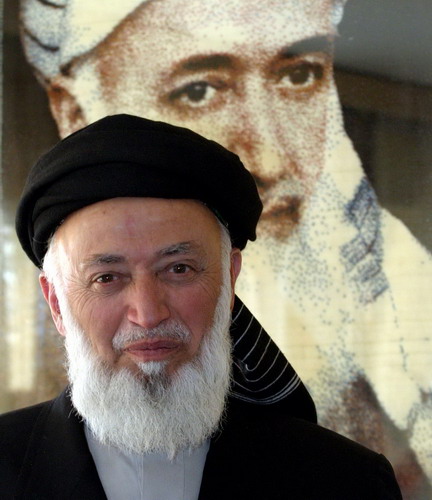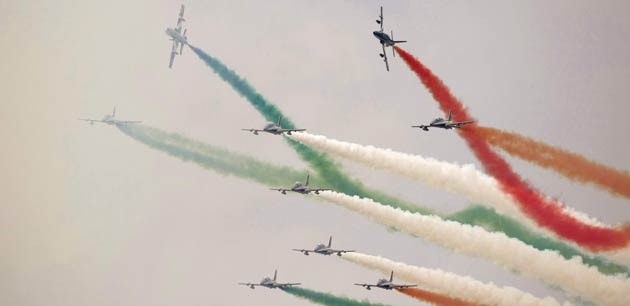Suicide bomber kills former Afghan president
Updated: 2011-09-21 09:25
(Agencies)
|
|||||||||
|
 Afghanistan's former president Burhanuddin Rabbani smiles during an interview with Reuters in Kabul in this November 1, 2004 file photo. [Photo/Agencies] |
Tuesday's attack, carried out in former President Burhanuddin Rabbani's Kabul home, dealt a harsh blow to attempts at ending a decade of war. The killing of Rabbani, an ethnic Tajik and one of the wise old men of Afghan politics, will blunt efforts to keep in check the regional and ethnic rivalries that help feed the insurgency.
President Hamid Karzai cut short a visit to the United Nations and called on Afghans to remain unified in the face of Rabbani's "martyrdom." An emergency Cabinet meeting was called for Wednesday.
The attack came days after a daytime assault by insurgents on the US Embassy and NATO headquarters that deepened a sense of insecurity in the capital.
NATO said in a statement that two suicide bombers were involved in the attack on Rabbani, both of them men who had feigned a desire to reconcile with the government. It was unclear if a second bomber was able to detonate his explosives.
Afghan officials, however, insisted there was only one attacker. Four men were wounded, including a key presidential adviser, said Mohammad Zahir, the head of criminal investigations for the Kabul police. Initial reports had four bodyguards killed but Zahir said those were incorrect.
Close friends of Rabbani said that the former president returned from a trip to Iran to meet with a man who had been described as a high-ranking Taliban contact. The visitor, a young man, was shown into the house by two of Rabbani's associates at the Afghan High Peace Council, who insisted that he did not need to be fully searched, said a friend who spoke anonymously because he was not a spokesman.
When Rabbani appeared, the man shook the former president's hand and bowed as a sign of respect, said Fazel Karim Aimaq, a former lawmaker from Kunduz province and friend of Rabbani.
"Then his turban exploded," Aimaq said. The blast broke windows in Rabbani's home and shook nearby houses.
As the leader of the anti-Taliban Northern Alliance, Rabbani sought a political deal with the Taliban - with US blessing - and he will be hard to replace soon. His death could unleash a well of resentment among some senior Northern Alliance members, who accuse Karzai of colluding with the Taliban.
Already Afghanistan's ethnic minorities have begun to rearm in the face of negotiations with the Taliban, who are mostly ethnic Pashtuns, as is Karzai. Rabbani's killing is likely to accelerate that process and lay the foundation for a possible civil war once US combat troops leave the country or take on support roles by the end of 2014.
In Kandahar province, the birthplace of the Taliban movement, officials worried that the assassination would dampen peace efforts.











